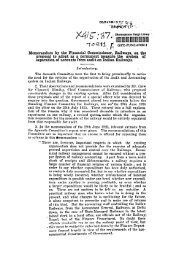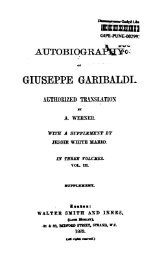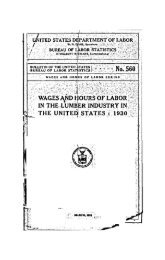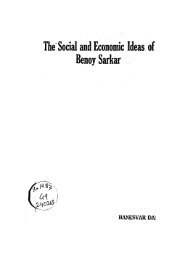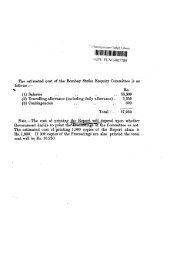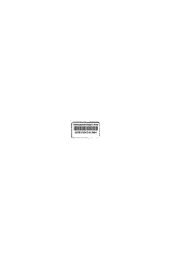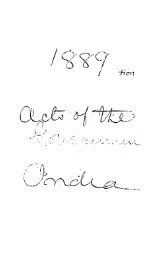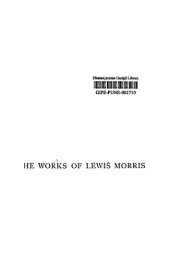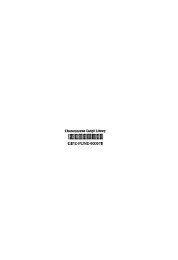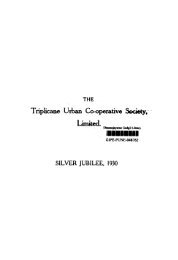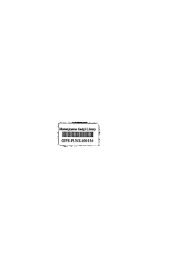Create successful ePaper yourself
Turn your PDF publications into a flip-book with our unique Google optimized e-Paper software.
6ctober 9th, 1925<br />
INDIAN OPINION<br />
PUBLIC HEALTH COMMITTEES AND<br />
INDIA~S<br />
Im Jurlgmcnt of the Supreme Court in the<br />
1f case of the Isipingo Public Health Committee<br />
v. A. C. Jadwat has brought a considerable<br />
amount of relief to thfl Indian community<br />
This wa'! one of a s.eries of actions brought<br />
by the vUlious Public Health Committees functioning<br />
in the 'uburban areas of Durban ag.linst re-<br />
, llJrcRentative Indians for the rates levied by them,<br />
which rates the Indians living in .those alMS had<br />
refuscd to pny. A number of exceptions were<br />
taken by defendant to the plaintiff's claim. the<br />
first of which was that the Committee was not a<br />
lawfully establiHhed body, that the Public Health<br />
Act gave the Provincial Council no power to create<br />
Public Hf'alth Committee" as it purported to do<br />
under the Public Health Committees Ordinance<br />
of 1923, and this exception has been held by tpe<br />
learned Judges t'. be quite justified. The Judges<br />
hold that the Health Committees are not one of<br />
the urban authorities to whom powers were entrnstfld<br />
by toe IIealth Act because they were not<br />
in existence at the time it was passed. The public<br />
Health Com'Dittees are not Divisional Councils nor<br />
ha·.e they been anothoritled by the Governor<br />
Gcneral to administer the Public Health Act as<br />
rural anthorities have been. "It was clear," remarked<br />
Ilis Lordship the Judge President, "that where<br />
there was no local authority in existence, the<br />
Guvernor-General, and he only, had the power to<br />
appoint a b'Xly of men to ad minster the Public<br />
Health Act. Section 8G of South Africa Act provides<br />
that Provincial legislation shall be valid and effective<br />
so long as it is not repugnant to any Union<br />
Act, and there could be no doubt that the Provincial<br />
Council, in attempting to arrogate to itself the<br />
powers expressly vested in the Gover_:or-tl-enel'al<br />
by the Public lIealth Act was acting repugnantly<br />
to the Act."<br />
Ever since ·the passing of the public Health<br />
Committees Ordinance it had l.>ecome a source<br />
(If great an'{icty to 1\ large nmnber of Indians<br />
residing in tho areas created under the<br />
Ordinance. The object of the Public Health Committees<br />
in which Indian'! were given no voice<br />
whatsoever either directly or indirectly, was, as<br />
they had provrd by thoir treatment of the Indians<br />
within their area'l, to victimis'} the Indians and<br />
ham'ls thorn as muC'h as possible, and this judgment<br />
has no doubt brought at least temporary relief<br />
to theM. We say temporary because we<br />
know that those who have a determined object·<br />
and have no scruples will find other ways and<br />
means to achieve that object Ollr contemporary<br />
thlNatal Mercury has already put fIrth a suggestion<br />
that" it the Provincial Council exceeded its<br />
powers in cre.Lting these Committees, the Governorlleneral-in-Council<br />
has certainly power so to do,<br />
and a pn damntion in the next Gazette shoulU<br />
establish them in a' position which will enable<br />
them to proceed with the WOl k which they have<br />
in hand." Wllat is amazing is that the Provincial<br />
Council should have been allowed to pass such<br />
an Ordinance ol!tside the powers conferred on it<br />
and, further more, that the Governor-General-in<br />
Council should have assented to it. Together<br />
with the creation of these Public Health Committees<br />
the Indians in the areas under the jurisdiction<br />
of those Committees had appointed their<br />
O)VIl Health Unions and it was their firm<br />
stand that had brought about the present test ease.<br />
They are to be congratulated not only 011 the success<br />
of their case but also for preventing an<br />
irregularity being perpetuated in the Provincial<br />
administration.<br />
Public Health Committees<br />
Ordinance<br />
ProvinCial Council Acting Repugnantly<br />
To Health Act<br />
The case of Isipingo Public Health Committee<br />
v. A. C. Jadwat was heard in the Supreme Court<br />
(Natal Provincial Division) on Thursday morning<br />
Oct. 1. 1925 before Sir John Dove-Wilson, Judge<br />
President, Mr. Justice Carter, and Mr. Justice<br />
Tatham.<br />
The Committee brought action in the Supreme<br />
Court for the recovery of the sum. of £19, which<br />
their declaration stated was owing by defendant in<br />
reepect of rates for which he had been asseflSed by<br />
the Committee. and which he failed to pay.<br />
The defendant excepted to the declaration on the<br />
following grounds :-<br />
(1) That it was bad in law, inasmuch as plaintiff<br />
is not a lawfully established body, the Provincial<br />
Council having no power under Act 36 of 1919. or<br />
any other law, to create the Public Health Committees<br />
which it pnrports to do under Ordinance 7 of<br />
1923.<br />
(2) Alternatively, if it be held that plaintiff i~ a<br />
vahdly constituted body, that the Provincial Council<br />
has no power to vest it with the right to impose<br />
rates.<br />
(3) Alternatively, if the above exeptions are disposed<br />
of, that the Ordinances relied upon by plaintiff<br />
do not in fact vest the plaintiff with that right.<br />
(4) Alternatively, in the event of none of the<br />
above exceptions being upheld, defendant excepts<br />
on the ground that the rate is ultra Vires, because:<br />
(a) The right to impose rates on immovable property<br />
conferred by Ordinance 7 of 1923 read with<br />
Ordinance 6 of 1924 does not entitle plaintiff to<br />
levy rates on buildings and dwellings only, nor to<br />
levy rates on business; (b) it is arbitrary and unreasonable.<br />
and the incidence of taxation unfair;<br />
(c) it is based, in respect of the residences, on a discrimination<br />
between European and non-European_<br />
Mr. J. J. L. Sisson, with him Mr. T. B. Horwood,<br />
instructed by Mr. W. L. Burne, appeared for the<br />
excipient defendants. Mr. E. A. Selke, with him<br />
Mr. Clarkson, instructed by Messrs. Clarkson and<br />
Driver, appeared for the respondent plaintiffs.<br />
On the first exception Mr. Sisson contended that<br />
the Provincial CouncIl had unwarrantably arrogated<br />
to itself a power expressly vested in the Governor<br />
Gellflral by the Public Health Act of 1919 Section<br />
7(4).<br />
Mr. Selke contended that the Provincial Council<br />
had power to legislate as it had. in terms of Section<br />
8:; of the South Africa Act. and that the legislation<br />
was not repugnant (under 8ection ~6 of the South<br />
Africa Act) to the provisions of the Publio Health



